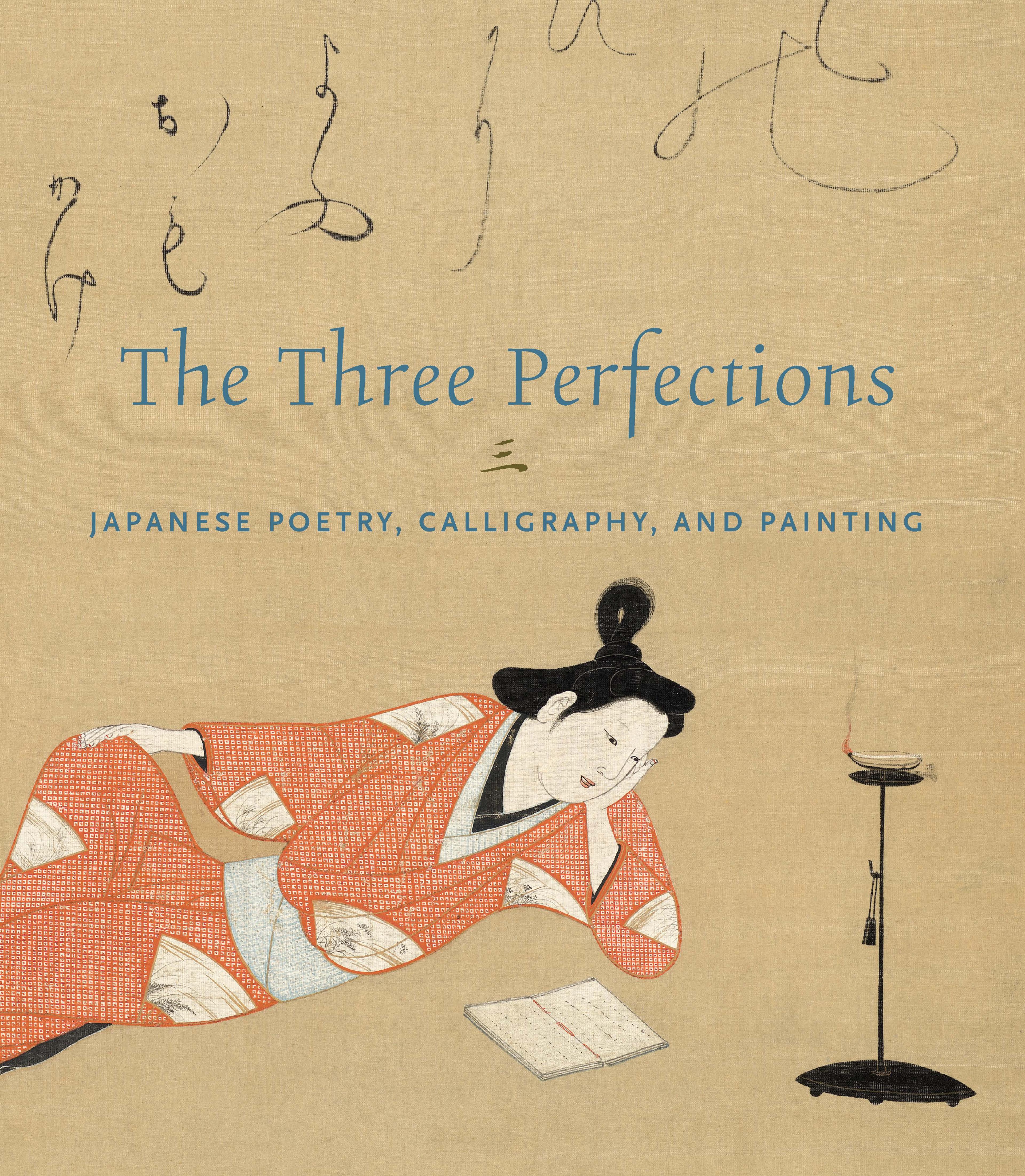Triptych of One-Column Calligraphies on Auspicious Natural Imagery
The Chan master Yinyuan Longqi founded Manpukuji Temple in Uji, on the southern outskirts of Kyoto, in 1661. His arrival in Japan from China marked a revitalization of Rinzai Zen monastic practice, and his robust calligraphy—in great demand by followers as well as members of the public—established a legacy in which Ōbaku monks excelled in the medium. Here, Yinyuan created a tableau of auspicious phrases using metaphors from nature; from right to left, it reads:
寿山青不老
慧日映慈門
福海碧無窮
The mountain of longevity,
evergreen, never grows old.
The sun of wisdom illuminates
the gateway to compassion.
The sea of good fortune,
deep blue, is boundless.
—Trans. John T. Carpenter
寿山青不老
慧日映慈門
福海碧無窮
The mountain of longevity,
evergreen, never grows old.
The sun of wisdom illuminates
the gateway to compassion.
The sea of good fortune,
deep blue, is boundless.
—Trans. John T. Carpenter
Artwork Details
- 隠元隆琦筆 一行三幅対「寿山」「慧日」「福海」
- Title: Triptych of One-Column Calligraphies on Auspicious Natural Imagery
- Artist: Yinyuan Longqi (Ingen Ryūki) (Chinese, 1592–1673)
- Period: Edo period (1615–1868)
- Date: 1671
- Culture: Japan
- Medium: Set of three hanging scrolls: ink on paper
- Dimensions: Image (a (right)): 49 15/16 × 14 9/16 in. (126.8 × 37 cm)
Overall with mounting (a (right)): 84 13/16 × 21 3/8 in. (215.5 × 54.3 cm)
Image (b (center)): 50 1/16 × 14 9/16 in. (127.1 × 37 cm)
Overall with mounting (b (center)): 85 1/16 × 21 3/8 in. (216 × 54.3 cm)
Image (c (left)): 49 7/8 × 14 9/16 in. (126.7 × 37 cm)
Overall with mounting (c (left)): 85 1/16 × 21 3/8 in. (216 × 54.3 cm) - Classification: Calligraphy
- Credit Line: Mary and Cheney Cowles Collection, Gift of Mary and Cheney Cowles, 2024
- Object Number: 2024.412.9a–c
- Curatorial Department: Asian Art
More Artwork
Research Resources
The Met provides unparalleled resources for research and welcomes an international community of students and scholars. The Met's Open Access API is where creators and researchers can connect to the The Met collection. Open Access data and public domain images are available for unrestricted commercial and noncommercial use without permission or fee.
To request images under copyright and other restrictions, please use this Image Request form.
Feedback
We continue to research and examine historical and cultural context for objects in The Met collection. If you have comments or questions about this object record, please contact us using the form below. The Museum looks forward to receiving your comments.
